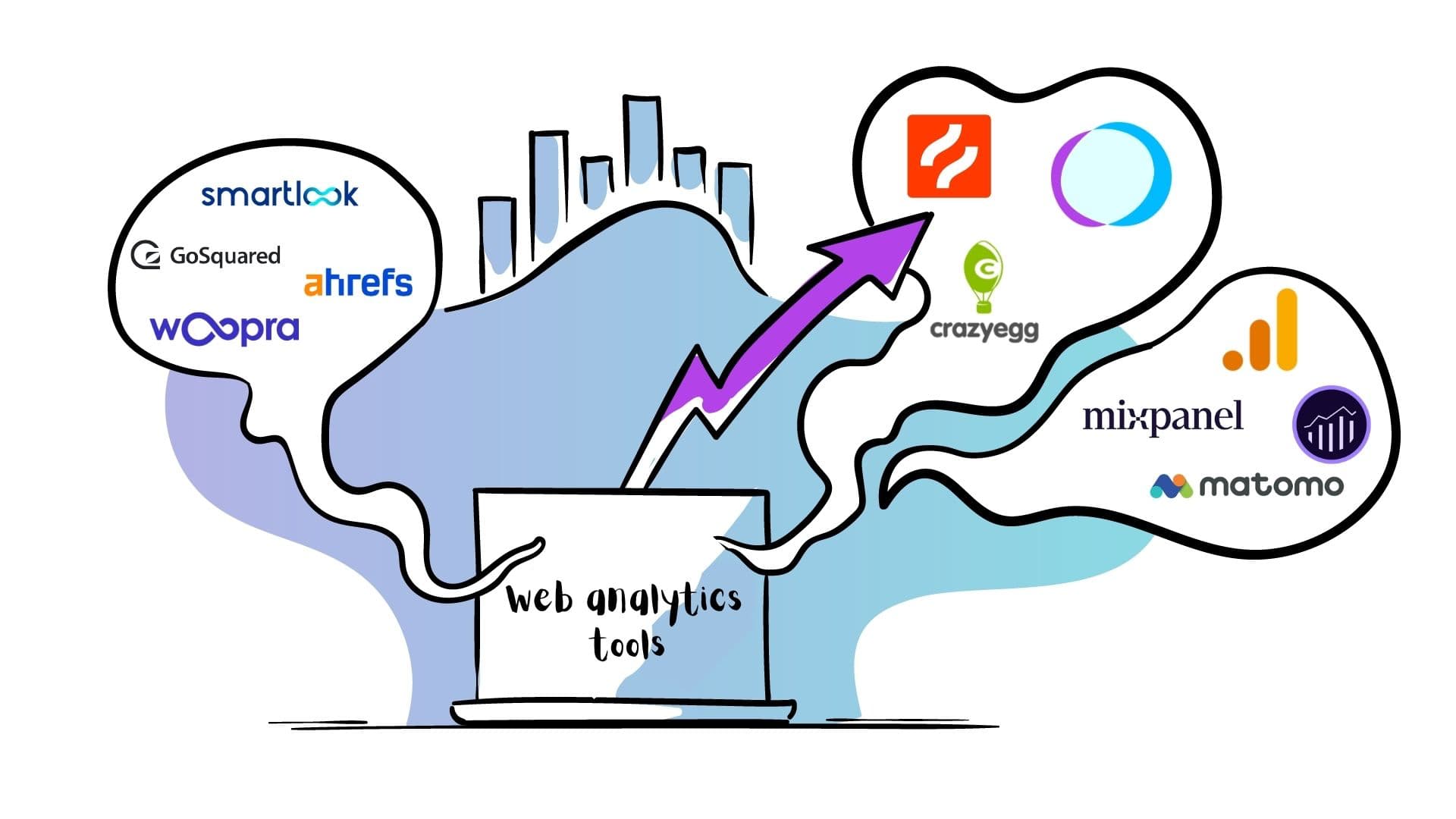When it comes to managing a successful website, understanding your audience's behavior, preferences, and performance metrics is crucial. That's where website analytics tools come into play. These tools help you track visitors, analyze their interactions, and optimize your site for better engagement and conversions. In this guide, we explore why these tools are essential, which ones are the best, and how to choose the right fit for your needs.
At its core, website analytics gives you a bird’s-eye view of how visitors interact with your site. Whether you're running an e-commerce store, a corporate site, or a personal blog, data gathered from analytics tools helps you understand your audience, enhance performance, and meet business goals. From free tools like Google Analytics to advanced platforms like Adobe Analytics or Matomo, there’s a wide range of options available for all skill levels and budgets.
Why is this important? Without proper analytics, you're essentially operating in the dark. You won’t know which marketing channels are effective, which content resonates most with users, or where visitors drop off. With the help of analytics tools, you can uncover this information, make data-driven decisions, and optimize every aspect of your digital strategy.
In this comprehensive guide, we’ll introduce the fundamentals of website analytics, the benefits of using analytical tools, and a detailed look at the top options in the industry today. By the end, you’ll understand exactly how to leverage these tools for your business success, especially if you're based in competitive markets like Melbourne, Australia.
Let’s explore the power of website analytics tools and why every online business should be utilizing them.
1. Introduction to Website Analytics
Website analytics is the practice of collecting, analyzing, and reporting data about web traffic and user behavior. These tools provide insights such as how users arrive on your site, how long they stay, what they do, and where they leave. This allows business owners to understand which strategies work and which need improvement. By interpreting this data, you can make smart decisions to refine content, design, and performance, all while boosting conversions and engagement.
2. Key Benefits of Using Analytics Tools
- Understanding Audience Behavior: Learn what your users are doing on your website—what pages they visit, how long they stay, and where they exit. These insights help you refine content and improve performance.
- Measuring Performance: Analyze the success of marketing campaigns by evaluating which channels drive traffic and which lead to conversions.
- Identifying Issues: Spot problematic areas where users drop off. Use this data to fix navigation issues or improve calls-to-action.
- Enhanced Targeting: With deeper knowledge of user preferences, you can personalize marketing strategies and increase relevance.
- Future Planning: Historical data enables long-term planning and the ability to forecast trends for better strategic alignment.
3. Overview of Popular Analytics Tools
Google Analytics
Google Analytics is the most widely used free analytics tool in the world. It provides a wealth of features such as traffic sources, real-time reports, user demographics, and behavior tracking. You can also integrate it with Google Ads and Search Console for more comprehensive insights. It's ideal for all business sizes and comes with extensive documentation and tutorials.
Adobe Analytics
Designed for enterprises, Adobe Analytics offers robust data segmentation, real-time tracking, and predictive analytics. It's excellent for businesses needing in-depth behavioral analysis and customer journey tracking. Adobe’s integrations and dashboard customizations make it a favorite for advanced marketing teams.
Matomo
Matomo is an open-source, privacy-focused alternative to Google Analytics. It offers features like heatmaps, session recordings, and full ownership of your data, especially in self-hosted setups. Businesses with strong compliance needs (such as GDPR) find Matomo a compelling choice for analytics.
Clicky
If you're looking for simplicity, Clicky offers real-time analytics and a clean, intuitive dashboard. It's a favorite among small businesses and bloggers who need quick insights without complexity. Key features include individual visitor logs and uptime monitoring.
Hotjar
Hotjar goes beyond numbers by offering visual representations of user behavior. Tools like heatmaps, session recordings, and on-site surveys allow businesses to see how users actually experience their website. It’s great for optimizing user experience based on qualitative data.
4. How to Choose the Right Analytics Tool for You
Choosing the right website analytics tool depends on several factors. Start by defining your goals. Are you trying to understand user journeys, improve conversions, or analyze traffic sources? If you're on a budget, tools like Google Analytics or Clicky are great entry points. For more advanced needs, Adobe Analytics or Matomo may offer more control and detail.
Consider ease of use—some tools have steep learning curves, while others are user-friendly out of the box. Integration is another key factor. Does the tool work with your current CMS, CRM, or email marketing platform? Lastly, think about scalability. Choose a tool that can grow with your business and offer deeper insights as your data needs expand.
5. Conclusion
In today’s data-driven digital environment, using the best website analytics tools is non-negotiable. Whether you're managing a large e-commerce platform or a small business website in Melbourne, Australia, understanding how visitors interact with your site is critical. These tools help you gather real-time data, evaluate your marketing efforts, optimize design and content, and ultimately improve your return on investment.
From comprehensive tools like Google Analytics to behavior-driven platforms like Hotjar, there's an option to suit every business. By turning insights into action, you can fine-tune your online presence, engage users more effectively, and drive measurable results. Don’t operate your website blindly—embrace the power of analytics and unlock your site’s full potential.
Contact Us
Email: ash@multidice.com.au
Phone: +61 481 834 691
Address: Melbourne, Australia


